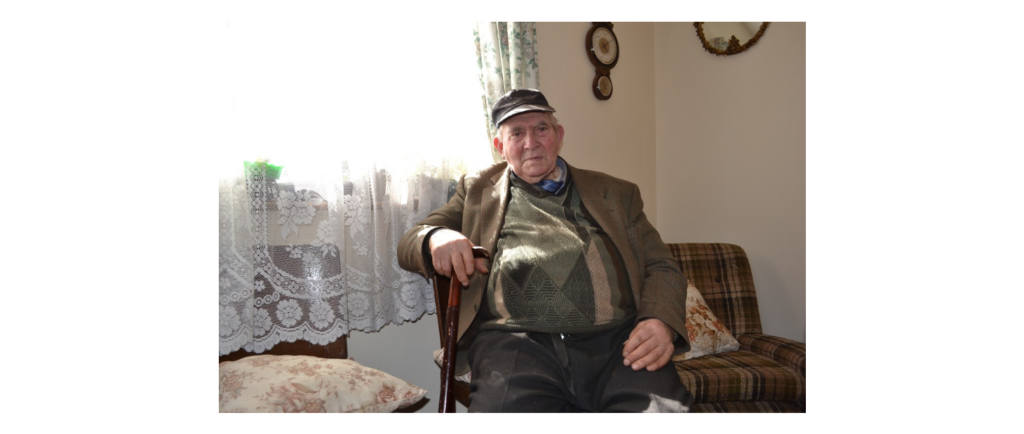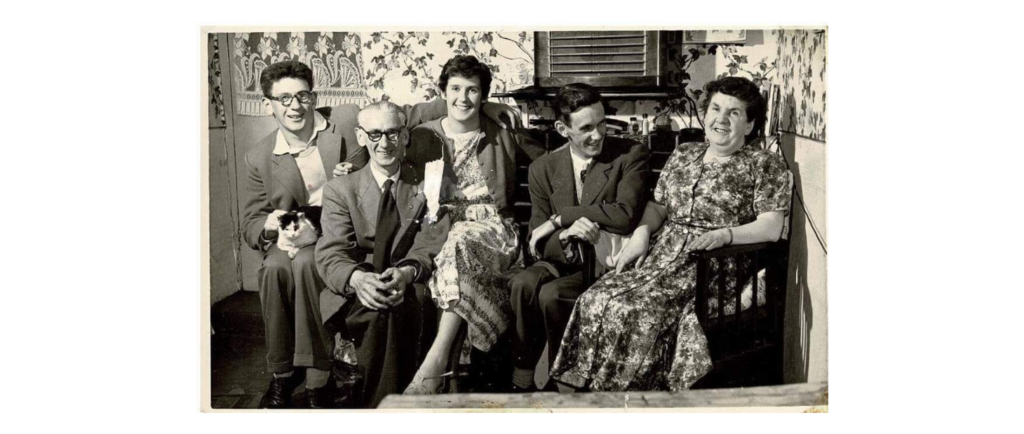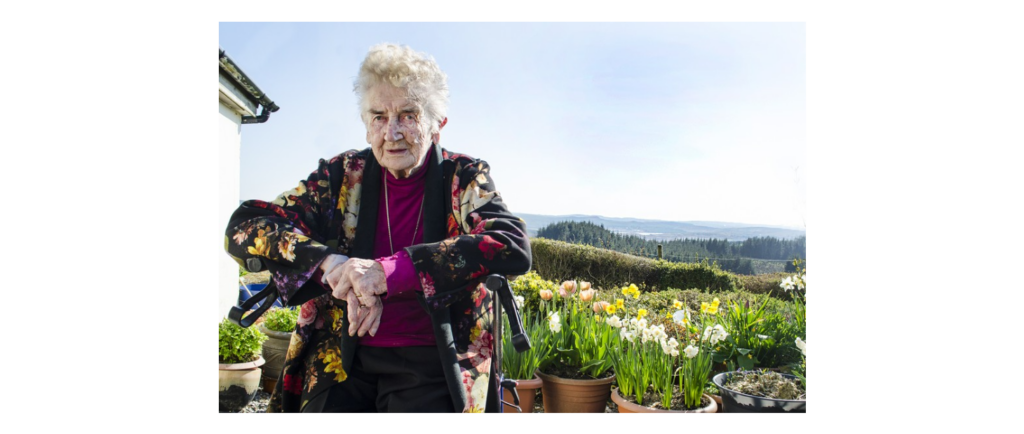The Digital Repository of Ireland (DRI) is delighted to announce that Clare Memories / Cuimhneamh an Chláir have ingested four new collections into the Repository – including expanding on their Women’s Stories collection and digitally preserving oral histories ranging from traditional farming accounts to Clare Traveller life.
Revitalizing the practice of ‘going on cuaird’, Cuimhneamh an Chláir undertake oral history-recording by embedding respectful listening and conversation with the elders of a community in their approach. Using this practice, the interviews ingested in these new collections consist of audio recordings that are usually conducted in the interviewee’s home. Most of the ingested files are accompanied by photographs of the interviewees, where available, and many of the clips recorded were used in Cuimhneamh an Chláir’s highly successful ‘The Past is our Future’ oral history showcase event, held in Kilfenora, county Clare.
Of these ingests, Cuimhneamh an Chláir Project Manager, Paula Carroll said:
We are delighted to be progressively uploading the Cuimhneamh an Chláir collection to the Digital Repository of Ireland. We put enormous emphasis on sharing our oral history collection.
Up to now we have been able to make curated bodies of Clare oral heritage available to the public, through our digital and in-person events. But through the work of archivist Clare Lanigan and the Digital Repository of Ireland, we can now make these interviews available in their entirety, fully catalogued and searchable.
As the only countywide community-based oral history archive in Ireland, we are thrilled to know that this Oral Heritage from Co. Clare is now in the care of a national Trustworthy Digital Repository, and available to the nation.
We are grateful to the Heritage Council for funding this work.”
About the Collections
The Traditional Farming and Nature in Clare collection contains oral histories focusing on themes of traditional farming, nature and biodiversity. Many of the interviewees have engaged with the Burren Programme, an agri-environmental programme providing grants to encourage sustainable farming practices in the Burren.

Topics discussed in these oral histories include describing winterage – a transhumance practice in traditional farming in County Clare, where animals were grazed on uplands during the winter; as well as the link between winterage practices and the unique flora of the Burren. Issues like mixed farming methods – a combination of arable and pastoral farming, with crops, kitchen gardens and keeping fowl, goats and pigs as well as cattle – are also touched on, as well as stories relating to the rural economy: including butter making, wool carding, pig butchering and other food production methods.

In the Clare Towns and Urban Life collection, residents from Ennis, Feakle, Kilrush, Lisdoonvarna, Miltown Malbay, Shannon, Scarriff among others, speak to their lived experiences and memories of these places. Madeleine Killeen of Ennis discussed growing up in the town – and speaks of the shops and businesses she remembers from her childhood.
Madeline also talked about her parents’ work as a stationer and a cinema projectionist, as well as her father’s military career in the British Army. She remembers swimming in the river as a young person, and attending boarding school in Roscrea – as well as her career working as a nurse in England, meeting and marrying her husband Bernard and their four children.
Particularly poignant are Madeline’s memories of the Carmody tragedy in Ennis – when a hotel partially collapsed and people were killed; as well as her recounting the names of a number of businesses and pubs in the town.
The Clare Traveller Life collection consists of audio recordings of wide-ranging conversations with both Cuimhneamh an Chláir cuairteoirí and with volunteer members of the Traveller community interviewing their elder relatives.
In these recordings, interviewees discuss the traditional Traveller lifestyle of their childhoods; their parents and grandparents; Traveller occupations such as tinsmithing, farm labour, horse dealing, crafts and homemaking – as well as experiences of travelling in covered wagons and meeting other Travellers while on the road.
An interview with Brigid ‘Bunty’ Mongans, sees Bunty recall her life travelling in a covered wagon as well as the changes brought about by moving to a settled lifestyle. Brigid also demonstrates a few sentences of the Cant language in her interview.
Of interest to sports fans, Brigid also mentions an older lady called Biddy Early, who had been rumoured to have placed a curse on the Clare hurling team. With the recent 2024 All-Ireland hurling team win, we might assume this curse has now been broken!

The Clare Oral History Podcast delves into the thousands of Irish life stories in the Cuimhneamh an Chláir archive. The oral histories gathered reveal ordinary lives and extraordinary stories. The podcast introduces the listener to the people and experiences that make the West of Ireland what it is.
The full first season of this podcast has now been ingested into the Repository, with episodes profiling stories of the coast, stories of the land, and profiles of rural people.
Listen to the podcast archive now.
Finally, we are also delighted to include that more oral histories have been added to the Women’s Stories collection in the Repository. These accounts include women describing life experiences from the 1920s to the present, providing a window into twentieth-century rural life in county Clare.

The interviews provide an insight into many aspects of the history and folklore of Clare, including the details of farm life; music, song and dance; folklore and superstitions; traditional cures; seasonal customs, sports, politics, social change; storytelling; the role of women and family life; religious practice; the culture of visiting, and many other topics.
DRI Director Dr. Lisa Griffith said:
“DRI are thrilled to receive four new ingests from Cuimhneamh an Chláir into the Repository – adding complexion and depth to the existing materials already ingested, and expanding the wealth of materials relating to Irish life, folklore, agricultural practices and lived experiences already deposited into the Repository.
These new collections include oral history recordings from members of the Traveller community in county Clare, strengthening our growing number of materials related to this community.
The commitment of Paula and all at Cuimhneamh an Chláir to oral histories is inspiring – from podcasts to photographs, it is a privilege to steward these materials safely and for the long-term.”
The Cuimhneamh an Chláir collections can be viewed and downloaded in the DRI Repository. This work was funded by The Heritage Council.
DRI are delighted to include this valuable collection in the Repository. Other similar collections in the Repository include: the Clare Memories: Women’s Stories collection, the folklore.ie collection and the Asylum Archive collections.
You can keep up to date with all of our collections by signing up to our newsletter.






